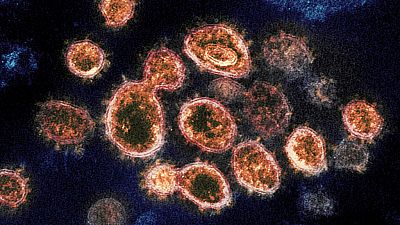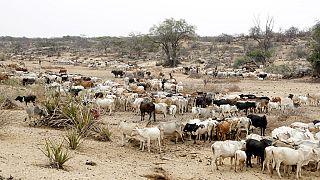Nigeria
Nigeria may have recorded index cases of anthrax, a bacterial disease that affects domestic and wild animals and can infect human beings.
According to the News Agency of Nigeria (NAN), the Federal Ministry of Agriculture and Rural Development, on Monday, officially confirmed the development in a statement signed by the Chief Veterinary Officer of Nigeria, Columba Vakuru.
Mr Vakuru is reported to have, said animals showing signs of a possible case of anthrax on a farm in Suleja, Niger State, were reported to his office on 14 July.
“The case was in a multi-specie animal farm comprising of cattle, sheep and goats located at Gajiri, along Abuja-Kaduna expressway in Suleja Local Government Area, Niger State, where some of the animals had symptoms including oozing of blood from their body openings – anus, nose, eyes and ears.” Part of the statement read.
About Anthrax and how it spreads to humans and livestock
According to experts, anthrax outbreaks are fairly common worldwide and mostly affect agricultural workers.
Humans become sick with the disease by handling animal products such as wool, hide or bone from animals infected with the anthrax bacterium, NAN reported.
Anthrax is an infectious disease caused by the bacterium Bacillus anthracis. The bacteria lives in the soil and usually infects wild and domestic animals, such as goats, cattle and sheep.
According to the Centre for Disease Control and Prevention (CDC), those with pulmonary anthrax are at risk of respiratory collapse and suffer the highest mortality rate of any anthrax victims, with 92 per cent of cases resulting in death.
The CDC said the third form of the disease, gastrointestinal anthrax, can occur when a person consumes the meat of an anthrax-infected animal.
“This is the rarest form of anthrax in the United States, but it can be deadly: Between 20 and 60 per cent of all gastrointestinal-anthrax cases result in death,” it said.
According to the U.S. National Library of Medicine, the most common form of the disease, cutaneous anthrax, was contracted when bacteria spores enter the body through a cut or scrape on the skin.
Of the three forms of the disease – cutaneous, pulmonary and gastrointestinal, cutaneous anthrax is the easiest to treat with antibiotics.
It is said that anthrax can also be inhaled into the human respiratory tract — this pulmonary method of infection is most common among those who process wool and animal hides.
The U.S. was hit by an anthrax scare in September 2001 after letters containing anthrax spores were mailed to several news media offices and politicians, killing five and infecting 17 others.
Meanwhile, in October 2014, an outbreak of gastrointestinal and skin anthrax in a village in Jharkhand, India, reportedly killed seven people, and in July 2016, nearly 100 people from nomadic communities in northern Siberia were hospitalised with the disease.












Go to video
Kenya cancels airport and energy deals with Adani group after the U.S. indicts the tycoon
Go to video
Fugitive Zambian MP Emmanuel Jay Banda arrested in Zimbabwe after three-month Manhunt
Go to video
Spain to offer residency and work permits to undocumented migrants
Go to video
Archbishop of Canterbury will end official duties in early January amid sex abuse scandal
Go to video
Congo opposition leaders call for protests against president's plan to change constitution
01:30
Mali: Former al-Qaida-linked police chief sentenced to 10 years for war crimes